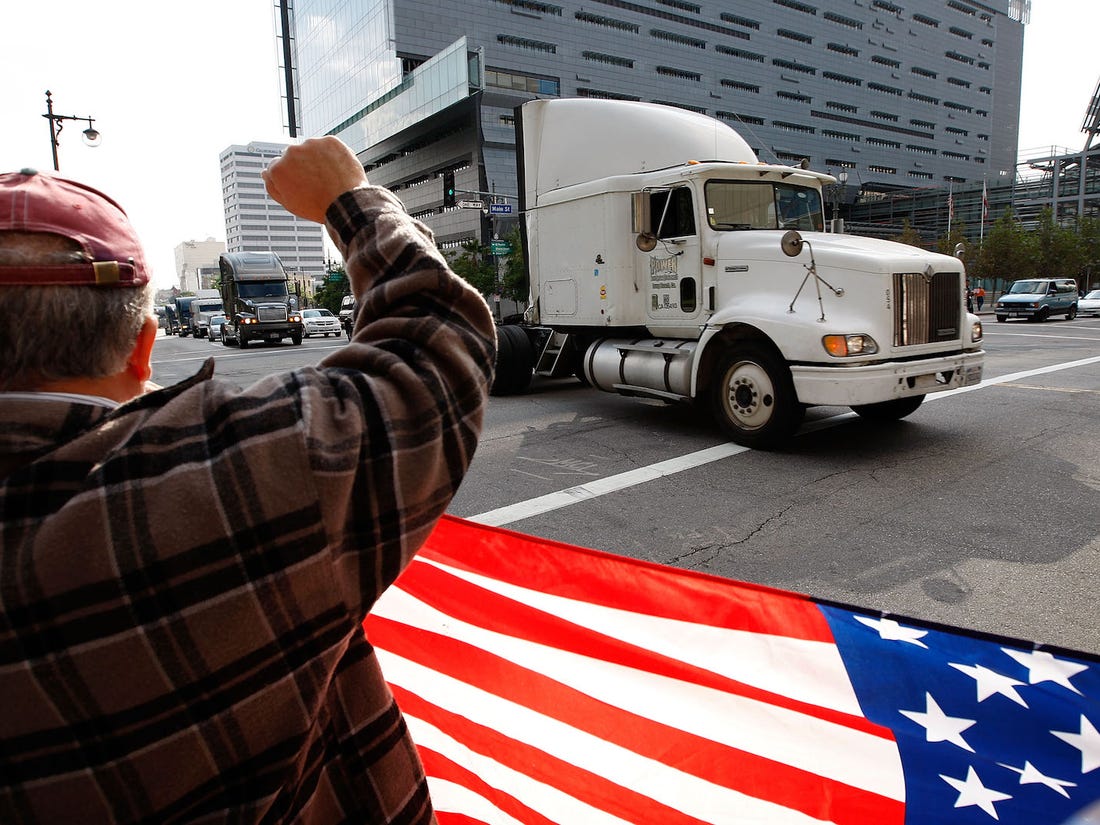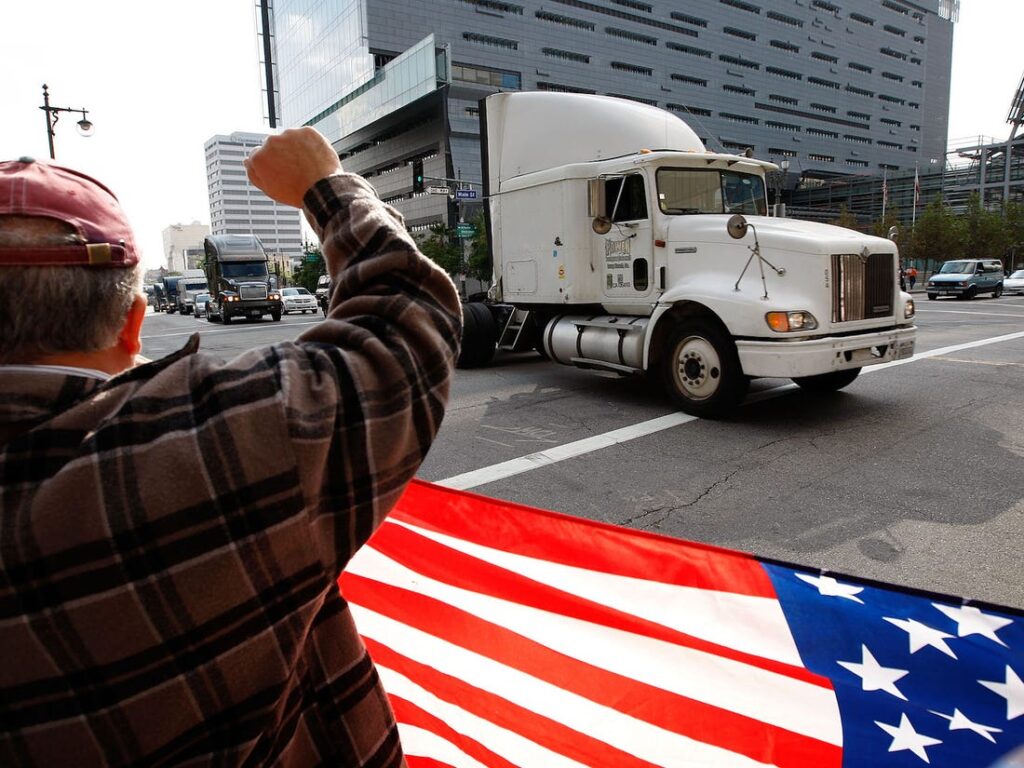Effects of Coronavirus COVID-19 on Specialized/Heavy Haul Machine Transport
Effects of COVID on Heavy Haul Transport

The Coronavirus Covid-19 has industries across the board concerned and curious. We’ve received numerous inquiries from colleagues, friends, family, and industry partners all seeking perspective. No matter what industry they’re involved with, they want to know how the economic impacts are affecting various professions. Rightfully so, many are especially interested in how COVID-19 has affected transportation. After all, trucking and transportation is the backbone of the economy. If you eat it or need it, it’s been on a truck at least once. Market analysts often monitor the activities of transportation companies and specifically when gauging development trends, follow companies like Caterpillar, John Deere, Komatsu, JCB, and other heavy construction companies.
Before diving into our own thoughts and experience, I’d like to present a few facts that reflect trucking and transportation numbers across the board. This includes data from major carriers representing both dry van , flatbed, consumer goods, and commercial products alike. According to the Commercial Carrier Journal, “More than 70% of the 270 fleets surveyed last week by CCJ reported that the Coronavirus crisis has caused freight to sink, with 41% reporting a significant decline”. Fleets surveyed range in size from those with 10 trucks to those with more than 1,000. On a scale 1-10, respondents were asked to rate current business conditions, with an average response of “4,” with 1 being the worst possible. That said, 20% of respondents reported some of their “worst weeks ever” for business. The initial shock of Coronavirus worries spiked truck orders dramatically over a 2 week period, with Americans scrambling to stockpile essential home goods, but has since taken a sharp turn downward, with truck orders at desperate lows.
It’s noteworthy to point out that, one of the most consistently reported metrics of trucking company difficulties, and one of the biggest complaints of management, is the inability to hire qualified drivers. The “driver shortage” as it is often referred, has been an ongoing hot topic for the last decade. The worrisome part of that is, even with this labor shortage, carriers have already begun reducing their driver capacity by an average of 24% as of week-end April 11, 2020. It says a lot for an industry who, as a whole, proclaims to have an already understaffed workforce, slash what it currently has by a quarter.
Our Experience
It’s tough out there. In normal operations, we link together routes for our drivers with a priority on servicing our regular customers. Filling in the gaps, we rely on spot-bid shipments, surplus shipments, and the needs of our transportation partners (brokers, freight forwarders, and load boards). While we remain committed to being available and at-the-ready for our trusted clients, the lack of surplus freight makes difficult the ability to piece together these routes. This means a lot of wasted “deadhead” miles, or “empty” miles, with no freight on the truck. Trucking margins are often small (especially when not properly managed), and the slightest disruptions can have profound impacts on the bottom line. We are in between the proverbial “rock and a hard place” because availability is so high, and truck demand so low, we cannot pass those losses onto the shipper.
Truck orders are significantly down, and those that are determined to press forward, are constantly being challenged by the variables in which they have no control. Shippers and receivers are working scattered hours, some working from home, some working not at all, it’s difficult to make a shipment a success if all of the supporting elements are not in sync.
I will say this about the supply chain, from our experience; the nation’s Ocean Ports have been doing a fantastic job mitigating the challenging barriers to trade. Specifically, the Port of Savannah in Savannah, GA and the Port of Brunswick in Brunswick, GA have thus far not missed a beat from our perspective. We’ve made deliveries and/or pickups to the Port of Charleston, Port of Jacksonville, and Port of Baltimore within the last week and have not been deterred in the slightest. We’d like to tip our hats to those fine organizations for navigating some really challenging times. Although I have heard of significant delays around the country, we have not had any real problems to speak of.
Specific to our primary line of work, oversized and overweight trucking, we’ve generally seen the oversized permitting departments of each state reflect what they are typically known for. Some states are business friendly with fast, efficient, and sensible permitting practices. Other states are known for slow, inefficient, and unreasonable burdens when it comes to the processing and submission of movement approvals. Generally, those who’ve been stellar in the good times, continue to be efficient. Those who’ve lacked, are lacking even more in these hard times. We’ve had a fair share of unique challenges in dealing with oversized movement permits. To give one example, the Specialized Carriers & Rigging Association has provided a list of states with significant procedural changes, here is their report for our home state of Georgia “Beginning Monday, March 23 GAPROS Office will be closed until further notice We will be working from home and have limited phone access…” We appreciate the good work the State of Georgia has done for our state in navigating these challenges.
Safety of drivers has been of concern to us and to themselves and their families as well. It seems some of the best spot-bid opportunities have been lanes going into the New York area or surrounding region. It’s no surprise that the drivers are reluctant to want to go there. It seems simple enough, stay in your truck, deliver the load, and get out of there. The problem and the risk elements are the en-route support facilities. Truck stops, rest areas, bathrooms, and supply stores. They are heavy traffic, heavy germ environments and moving to or from a hot-spot, it’s an extra caution that needs to be considered.
Overall, we are pessimistic about the next several months. I think we share that prerogative with many others within our line or work. However, we aren’t the lay down and die type. We are adaptive, challenge-seeking, solution oriented people whose job it is daily to make harmony out of chaos. The scenarios change regularly and we never back down from solving the next problem. We know that these challenging times are unprecedented and never before seen in our lifetime, but as they say, the only thing guaranteed in life is change (and death and taxes). We are committed to being forward thinking and a part of the solution. See you on the other side.
By Stephen Floyd - Project Freight LLC
Works Cited:
Commercial Carrier Journal “Fall off in freight rates prompts layoffs as trucks sit idle”
https://www.ccjdigital.com/fall-off-in-freight-and-rates-prompts-truck-driver-layoffs/
Specialized Carriers & Rigging Assocation “ SC&RA OS/OW Permit Alerts”
https://www.scranet.org/SCRA/Content/advocacy/2020-OSOW-Permit-Alerts.aspx
Effects of Coronavirus COVID-19 on Specialized/Heavy Haul Machine Transport Read More »

